MercoPress. South Atlantic News Agency
Tag: human rights
-
Thursday, August 23rd 2018 - 09:12 UTC
The democratic challenge to dictatorships and xenophobia in Latin America
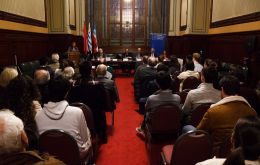
During the conference entitled “The democratic challenge to the autocracies of the 21st century in Latin America,” organized by the Center for the Opening and Development of Latin America (CADAL) on Tuesday at the Senate of Uruguay, the Government of Venezuela was described as a “dictatorship” and it was exhorted that the democratic governments of the region, especially the Uruguayan government, not be indifferent or “accomplices” against today’s Latin America’s autocratic governments.
-
Tuesday, August 21st 2018 - 08:40 UTC
Macri to report Venezuelan government to the International Criminal Court
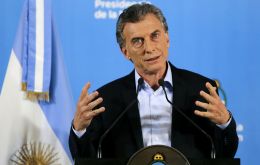
Argentine President Mauricio Macri plans to report Venezuela’s government to the International Criminal Court at The Hague for alleged crimes against humanity, according to an interview broadcast on CNN’s Spanish service on Sunday night. Macri said he would seek to refer populist President Nicolas Maduro’s government “in the coming weeks”, and that he had the backing of the presidents of Colombia, Chile and Paraguay.
-
Tuesday, July 17th 2018 - 09:49 UTC
Nicaragua: UN Secretary General deplores and condemns violence against civilians

United Nations Secretary-General António Guterres on Monday deplored and condemned the ongoing violence against civilians, including against students, in Nicaragua.Speaking on behalf of Mr. Guterres at the UN Headquarters, Deputy Spokesman Farhan Haq told reporters that “the use of lethal force is not only unacceptable but is also in itself an obstacle to obtaining a political solution to the current crisis”.
-
Tuesday, June 26th 2018 - 17:39 UTC
“Uniting the world against terrorism”: OP-ED on the United Nations conference on counter-terrorism

NEW YORK — Terrorism is a persistent and evolving global menace. No country is immune. Social media, encrypted communications and the dark web are being used to spread propaganda, radicalize new recruits and plan atrocities. The threat ranges from the crude tactics of lone actors to sophisticated coordinated attacks and the horrific prospect of terrorists using chemical, biological or radioactive weapons.
-
Saturday, June 23rd 2018 - 09:05 UTC
Hundreds of arbitrary killings by Venezuela security forces, claims UN
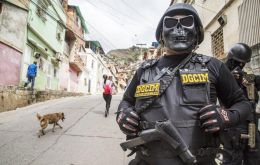
Venezuelan security forces have carried out hundreds of arbitrary killings under the guise of fighting crime, the UN's human rights body says. In the report it cites “shocking”accounts of young men being killed during operations, often in poor districts, over the past three years.
-
Friday, June 15th 2018 - 16:21 UTC
Nicaragua crisis: Many seek to flee the country
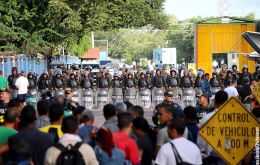
As the crisis worsens in Nicaragua, pressure on the part of society that demands the resignation of President Daniel Ortega remains. This generates that, in many cities like Masaya, the streets are blocked with more than 200 barricades while their neighbors organize to guarantee security and collect food for the protesters who are entrenched, resisting the paramilitary siege against the city. However, there has been an overflow of passport applications in recent weeks.
-
Thursday, June 7th 2018 - 23:10 UTC
The Uruguayan Foreign Ministry describes the number of immigrants arriving in the country as “never seen before”
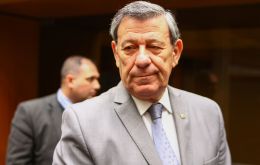
Immigration to Uruguay, Argentina and Chile has exploded exponentially in recent years. It is receiving an “unprecedented” daily requests for refuge in the southern country, according to the Director of Human Rights and Humanitarian Law of the Uruguayan Ministry of Foreign Affairs, Dianela Pi, who explained to MercoPress that “There are acts of discrimination and xenophobia that are emerging in Uruguay as never before” as a result of the migratory phenomenon. This wave comes mostly from citizens of Venezuelan origin.
-
Saturday, June 2nd 2018 - 08:09 UTC
Nicaragua's husband-wife team ready to fall: end of the road for the Ortegas

By Gwynne Dyer (*) - From the Ceausescus in Romania (overthrown and shot 1989) to the Mugabes (removed in a non-violent military coup 2017), husband-and-wife teams running authoritarian regimes seem to have a particularly high casualty rate. And now it may be the turn of the Nicaraguan team: President Daniel Ortega and his wife, Vice-President Rosario Murillo.
-
Saturday, May 26th 2018 - 18:23 UTC
'Storms' and arrests among Venezuelan Armed Forces; more tortures and political prisoners

After the presidential election in Venezuela on May 20, in which President Nicolás Maduro was re-elected, a wave of arrests has been reported among Venezuelan military in several parts of the country. As well as releases and new arrests of civilians and soldiers for political reasons.
-
Monday, May 21st 2018 - 08:42 UTC
Nicaraguan truce on the cliff after claims police attacked and shot students
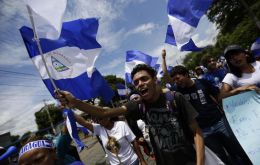
Nicaraguans were back on the streets in their thousands on Sunday to protest what they called a government breach of a two-day truce agreed during Church-mediated peace talks. Students at a university in northeastern Managua claim police attacked them during a demonstration outside the campus on Saturday night in which four students were shot and injured.
